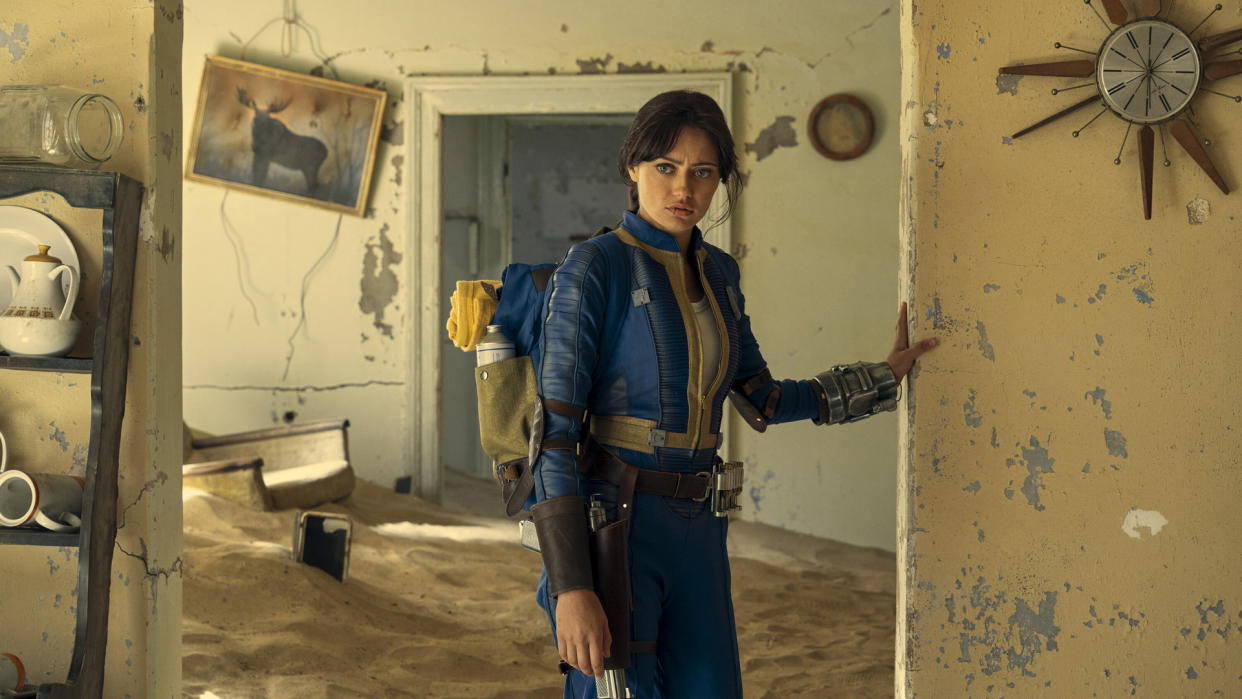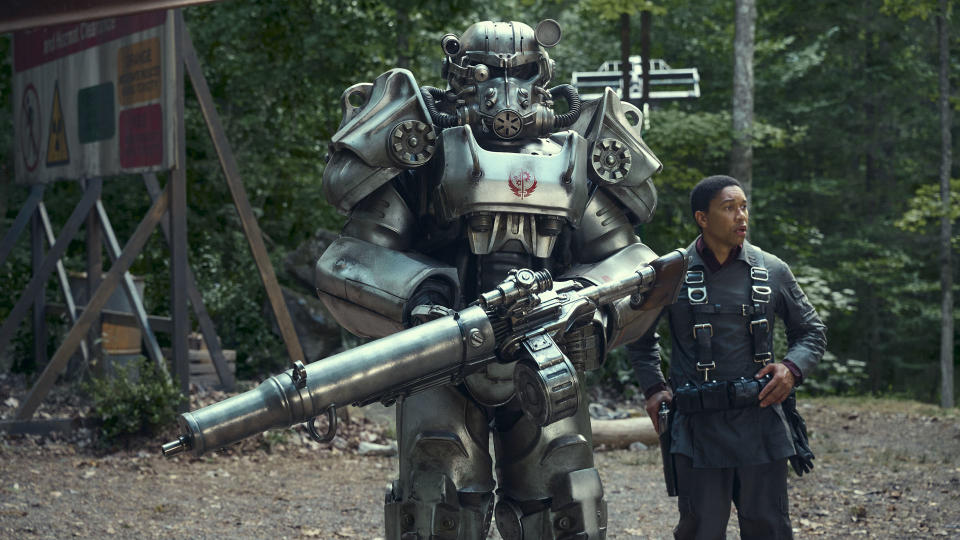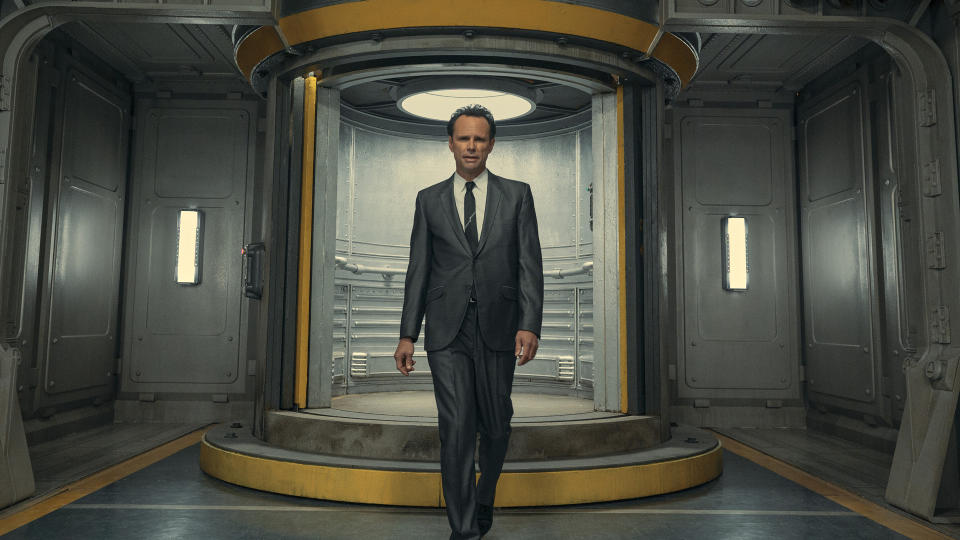'Forever changed': Amazon's Fallout cast discuss their characters' 'violent' season 1 voyages across the Wasteland

- Oops!Something went wrong.Please try again later.
Major spoilers follow for Fallout on Prime Video.
The cast of Amazon's Fallout series have opened up on their characters' "violent" season 1 journeys across Earth's post-apocalyptic Wasteland.
Speaking exclusively to TechRadar, Ella Purnell, Aaron Moten, and Walton Goggins revealed that the life-or-death scenarios that Lucy, Maximum, and The Ghoul face throughout the Fallout TV show "forever change" who they are as individuals.
For the idealistic Lucy, the prospect of killing people, severing the deceased Siggi Wilzig's head from his body, and facing off against terrifying monsters, such as the Gulper, eroded the innocence she possessed before her quest to save her kidnapped father began. As Purnell explained, from the moment that Lucy leaves the safety of Vault-33 in the Prime Video series, there's no going back to the naive, unworldly person she was. To that end, Purnell made a creative suggestion that Jonathan Nolan and the show's writing team hadn't considered in order to prove how the brutal, dystopian world reshapes her worldview and sense of identity.

"She becomes torn up, ugly, and bedraggled by the end of season 1," Purnell explained. "It was really important to me to show what she really went through and how it [a costume change] became a reflection of what's going on inside her.
"One of the interesting things I worked on with [costume designer] Amy Westcott is Lucy's footwear. I don't know if many viewers will notice it, but she loses one of her shoes, and I think it symbolizes that Lucy's lost a part of herself and her ideals. By episode four's end, she finds a new shoe – and that wasn't in the original script. From that point onwards, she's carrying part of the Wasteland with her through that boot. I think that represents the way in which she was forced to survive, make the difficult choices she's had to, and has been forever changed by her experiences."
For Moten, the power-driven Maximus has already been molded by Fallout's largely barren landscape. Maximus was born on the nightmarish surface world decades after the nuclear apocalypse known as The Great War, so he's already been forced to survive every day of his life. His acquisition of the T-60 power armour suit in episode two, though, not only provides him the opportunity to make a difference on the hellscape he calls home, but gives him the thematic strength to embark on a difficult mission of his own and fulfil his ambitions of becoming a well-regarded member of the militaristic faction known as The Brotherhood of Steel.
"Maximus begins his journey of claiming that power that he feels he needs in order to survive," Moten said, "And he has to make concerted but no less horrible choices to obtain and then keep [the power armor]. There's something violent about that desire and the war going on inside of him that starts to make its way out, and I think that influences much of his journey and determines who he becomes as season one progresses."

As for Goggins, The Ghoul has already been changed – in more ways than one – by the appalling events that he was subjected to as Cooper Howard, his former human form, amid The Great War in October 2077. The Ghoul undertakes his own enlightening journey in the show – read my Fallout season 1 review while you're here – but, as Goggins told me, The Ghoul's arc is characterized as much by the man Cooper was before the bombs fell as it is by who he is in the present.
"I needed to understand who Cooper was before I could understand The Ghoul's cynical persona," Goggins explained. "Cooper was a 21st century movie star who was inspired by the great myths that were created about real-world 20th century American exceptionalism and real-life actors of that time. Stars of that era were so graceful, full of great stories, and had great senses of humor. The likes of John Wayne, Henry Fonda, and James Arness – they had an ease, elegance, and warmth that I wanted to use and explore within Cooper.
"Once I had that down, I could turn that on its head for The Ghoul. He doesn't see the humanity in himself or anyone else anymore. Having him grapple with the 'Cooper within', so to speak, though his interactions with Lucy and [Wilzig's canine companion] CX-404 wasn't easy emotionally, but it ended up being extremely cathartic from a character perspective."
There's plenty more to learn from my exclusive chats with Fallout's cast, creator Jonathan Nolan, and Bethesda boss Todd Howard, the latter of whom explains how Amazon's Fallout TV show includes the "one things we could never do" in the games that it's based on. You can read more stories like that regarding one of the best Prime Video shows (in my opinion, of course) below.

